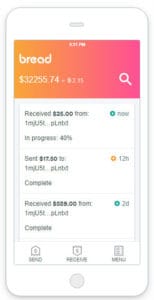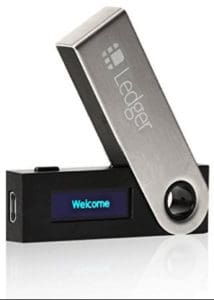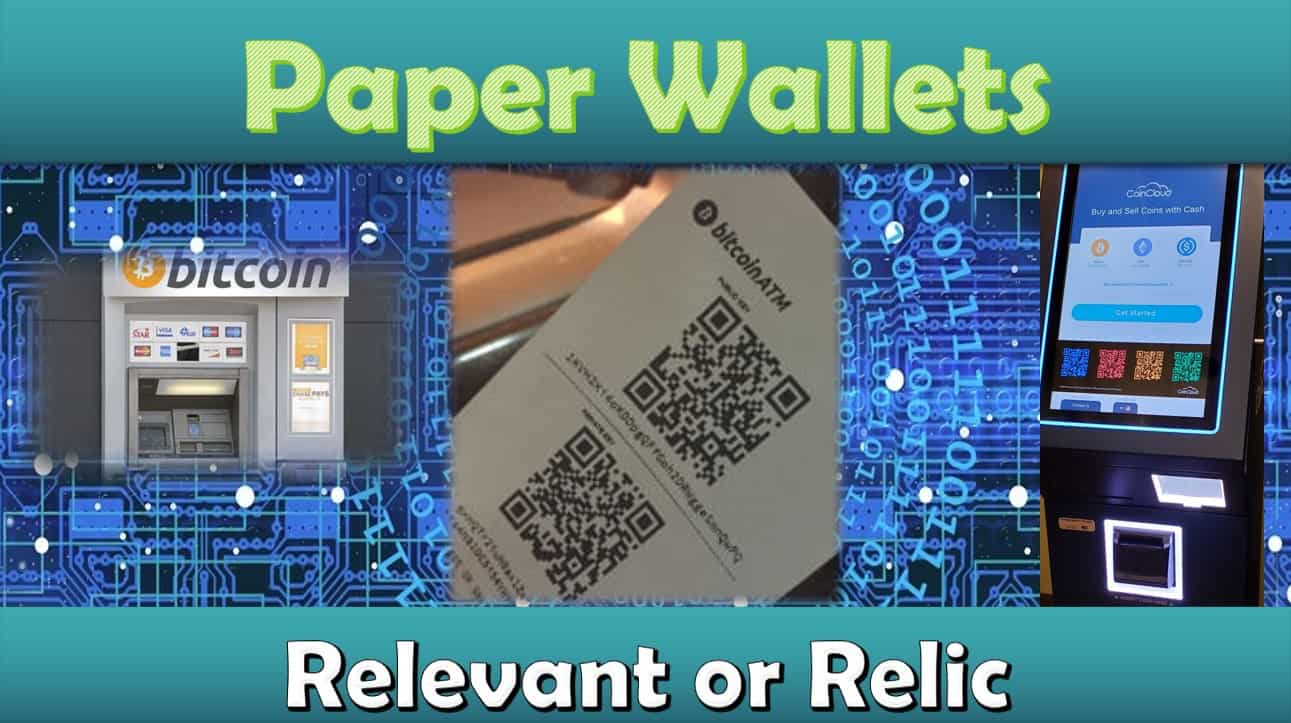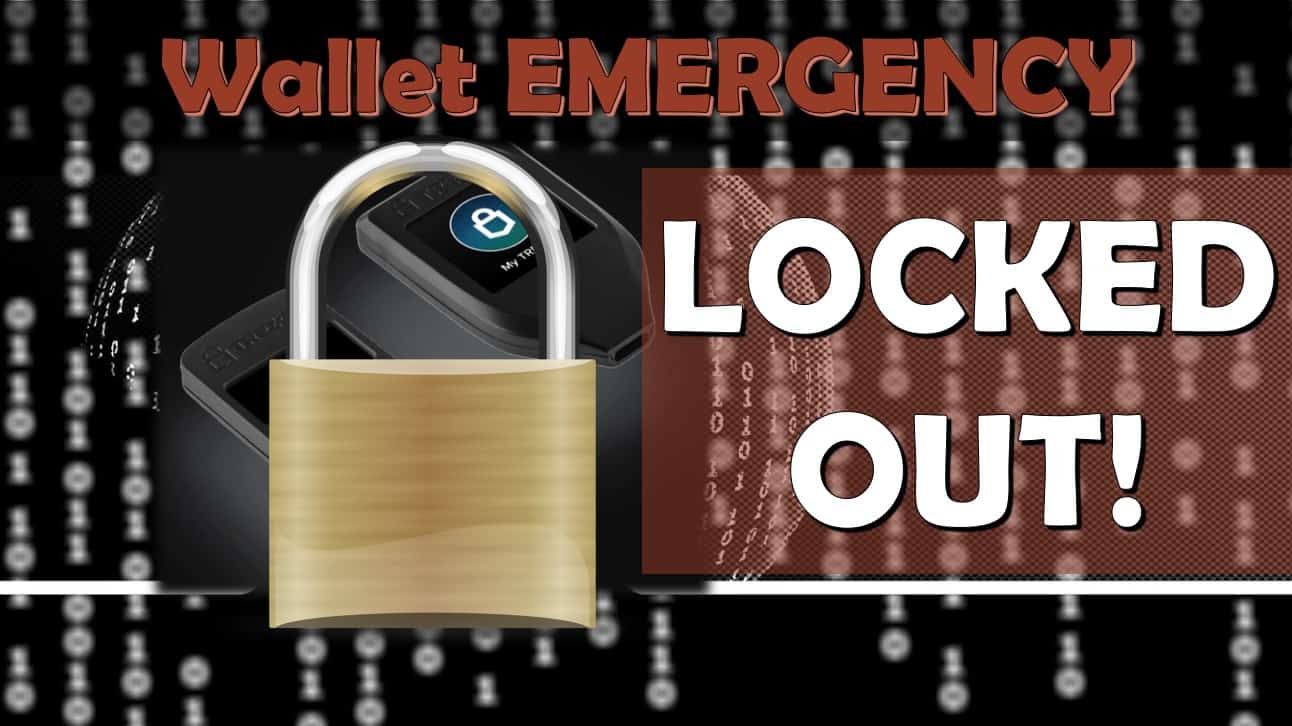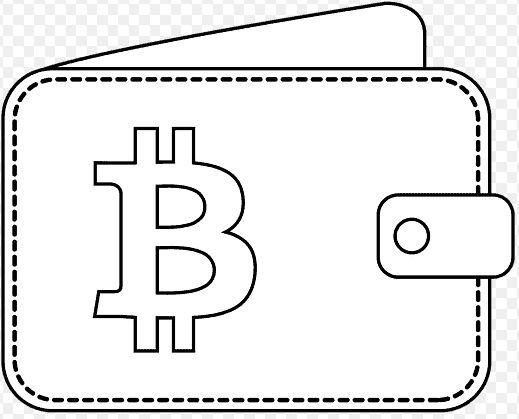
Secure Your Investment With A Cryptocurrency Wallet
Last updated on February 6th, 2023 at 04:58 pm
Once you begin your journey with investing in cryptocurrency, you must have a way to keep your investments safe.
In the crypto universe, this means putting your coins and tokens in a wallet.
There are different types of wallets, each has unique advantages and disadvantages, all of which we will discuss in this article.
We will also provide you with list of the ones that we suggest for keeping your assets safe.
What is a Cryptocurrency Wallet?
Where do we begin…. let’s start with a basic definition of exactly what a cryptocurrency wallet is.
In a nutshell, a cryptocurrency wallet is a digital wallet which is used to receive, store and send cryptocurrency.
OK, now that we’ve got that out of the way, let’s clarify a few things…
To start, most digital currency has an official wallet for asset owners to use.
Some of these currencies also recommend a third party wallet that you can also use to store your currency.
These are often referred to as a multi-currency wallet.
Next, technically speaking your cryptocurrency is not actually “stored” in a wallet.
A wallet holds a private key. A private key is a secure digital code that is known to only you (and you wallet of course).

This private key in your wallet, shows your ownership of a public key.
A public key is a public digital code which is connected to specific amount of digital currency.
Are you confused yet?
I guess it could sound a bit complicated for those who are “technologically challenged.”
So let’s try to pull it all together…
Your cryptocurrency wallet stores your public and private keys, which provides you access to your funds.
And as part of this functionality, the wallet allows you to send and receive coins while keeping track of every single transaction in the form of a ledger.
Wallet Security

Now, given the value that your crypto investments can reach, having as much security as possible would seem prudent.
Let’s start out by saying that cryptocurrency wallets are built to be secure.
But please realize that the exact level of security depends of the specific type of wallet you are using.
Also, generally speaking, the more secure the wallet, the less convenient it is to use on a daily basis.
Some Wallet Security Basics
So, by using some online security “best practices” you can help keep any wallet you decide to use secure.
Money Storage
—> Use the “official” currency wallet whenever possible
—> Only keep the minimum money you need in your wallet
—> Transfer long term investments into cold storage using a hardware or paper wallet (more about the different types of wallets later)
Passwords
—> Be sure to use strong passwords
—> Be sure that you do not use the same password on all your wallets
—> Never give anyone your password
Extra Security Layers
—> If the wallet you are using allows for Two Factor Authentication (2FA), use it. The best options are Google
Authenticator & Authy
—> If your wallet supports multisig transactions (requires more than 1 signature), be sure to activate it
Back-up
—> Be sure to encrypt your wallet
—> Be sure to back-up your wallet
—> Save more than one copy of your back-up recovery phrase. Keep it written and secured in more than one safe location (safe, safety deposit box)
—> Never give anyone your back-up recovery phrase
Software Updates
—-> To ensure the most secure wallet possible, be sure to keep the software which is running (and securing) your wallet up to date
Types of Wallets

Ready for more options and potential confusion???
We will try to keep it as straightforward as possible for you.
As you have probably already figured out, there are different types of wallets.
These include online, offline, mobile, hardware, desktop and paper.
The “type” of wallet refers to the storage medium.
Online Wallet
This type of wallet is a web based wallet. These are also sometimes referred to as a hot wallet.
These wallets are hosted on a real or virtual server. Some of these wallets allow for encryption of your private data.
Some examples of this type of wallet are exchange wallets (such as your wallets on CoinBase) or BlockChain.info.
While these wallets are much more convenient to access, they are generally less secure. Because of the very nature of the wallet, it is vulnerable to being hacked.
Mobile Wallet
Much like the name suggests, a mobile wallet is one that you can access via your cell phone.
You download the app to your smartphone and you can have your crypto with you all the time.
These are considered the most convenient wallets because, let’s face it, who even leaves the house without their cell phone these days?
Be sure to back these up, because if you loose your phone and you didn’t… there goes your crypto.
Some examples of this type of wallet include Bread and Mycelium.
Desktop Wallets

Again, like the name leads you to guess, this type of wallet is one which is downloaded to a computer and operated from there.
Desktop wallets provide a bit more security but a little less flexibility & convenience.
They are only accessible from the computer on which they are loaded.
Some examples of this type of wallet include Exodus and Armory.
Offline Wallets
These names just continue to be self explanitory…
Offline wallets, sometime referred to as cold storage or cold wallets keep your cryptocurrency in a location that is in no way linked to an internet capable device.
Offline wallets include hardware wallets and paper wallets.
Paper Wallet
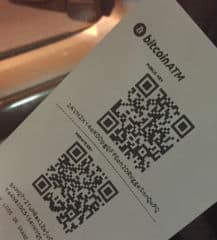
Think of a paper wallet just like having fiat currency.
With paper wallet you actually print out a QR Code on paper.
This QR Code contains your public and private keys. So, if you are looking to own digital currency without having to store it in a digital form, then this is for you.
This type of wallet provides the maximum level of security (assuming you don’t loose your printed paper) because it is not stored anywhere it can get hacked.
As long as you put this paper in a safe location, it will always be there.
The flip side of this wallet is the lack of convenience. You have to obtain the paper each and every-time you want to spend any of your digital currency.
Hardware Wallet
A hardware wallet is considered by most people to be the safest type of wallet with a better level of convenience than paper.
A hardware wallet is a dedicated piece of hardware, such as a USB drive that is specifically built to hold your cryptocurrency.
When you want to spend your crypto, the device can be connected online, your transaction can be completed and the remainder of your crypto can then be pulled offline when you’re finished.
Some examples of hardware wallets include the Ledger Nano S, Ledger Blue and KeepKey.
What Wallet Should You Use?
Right now you probably asking yourself, “OK, ok… enough… what wallet should I use?”
Well, honestly, it really comes down to a matter of preference, what you plan to do with your crypto, how long are you planning to HODL (HOLD).
We will be creating another post (and most likely a video also) which will list our recommendations for each wallet type so you can have option for what best suits your needs.
Happy Investing!
Disclaimer
The information provided here is for INFORMATIONAL & EDUCATIONAL PURPOSES ONLY!
View our complete disclaimer on our Disclaimer Page

